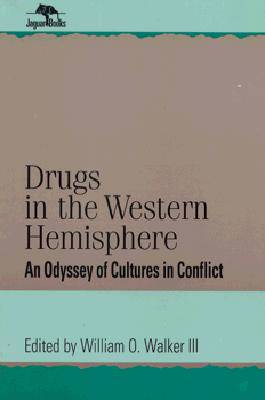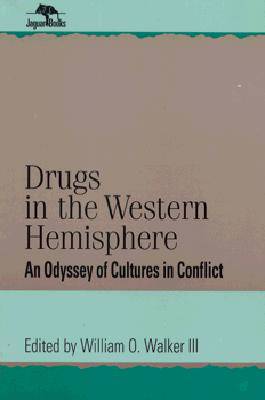
- Afhalen na 1 uur in een winkel met voorraad
- Gratis thuislevering in België vanaf € 30
- Ruim aanbod met 7 miljoen producten
- Afhalen na 1 uur in een winkel met voorraad
- Gratis thuislevering in België vanaf € 30
- Ruim aanbod met 7 miljoen producten
Drugs in the Western Hemisphere
An Odyssey of Cultures in Conflict
€ 68,95
+ 137 punten
Omschrijving
A history of drugs is a study of cultures in competition, argues editor William O. Walker III. Eminently adaptive, drug cultures have competed with proscriptive cultures to create a legitimate place for themselves, although one that the dominant society may recognize only tacitly. Professor Walker brings together forty-six essays that examine the complex negotiations and changing rhetoric revolving around issues of drugs and their control between the United States and its Latin American neighbors. Drugs in the Western Hemisphere is divided into six parts. Articles are arranged chronologically, offering the reader a compre-hensive overview of the evolution of U.S.-Latin American drug policy from the turn of the century to the Clinton administration. Part I, Cultures in Conflict suggests that clashes between members of drug cultures and proponents of drug control traditionally have occurred within the context of the forma-tion of the modern nation. Part II, Drugs in Latin America, 1920-1940 takes a closer look at inter-American policies revolving around drugs in the 1920s and 1940s. Part III, Wartime Experience and Part IV, Confrontation and Controversy examine how World War II both affected U.S.-Latin American drug policy and set the tone for many years to come. Part V, Drugs and Security and Part VI, Drugs in the Americas: An Assessment takes the reader through to the Clinton administration. Writers here note the concerted efforts of the United States to establish hegemony over drug control throughout the Western Hemisphere.
Specificaties
Betrokkenen
- Uitgeverij:
Inhoud
- Aantal bladzijden:
- 262
- Taal:
- Engels
- Reeks:
Eigenschappen
- Productcode (EAN):
- 9780842024266
- Verschijningsdatum:
- 1/02/1996
- Uitvoering:
- Paperback
- Formaat:
- Trade paperback (VS)
- Afmetingen:
- 152 mm x 226 mm
- Gewicht:
- 426 g

Alleen bij Standaard Boekhandel
+ 137 punten op je klantenkaart van Standaard Boekhandel
Beoordelingen
We publiceren alleen reviews die voldoen aan de voorwaarden voor reviews. Bekijk onze voorwaarden voor reviews.









